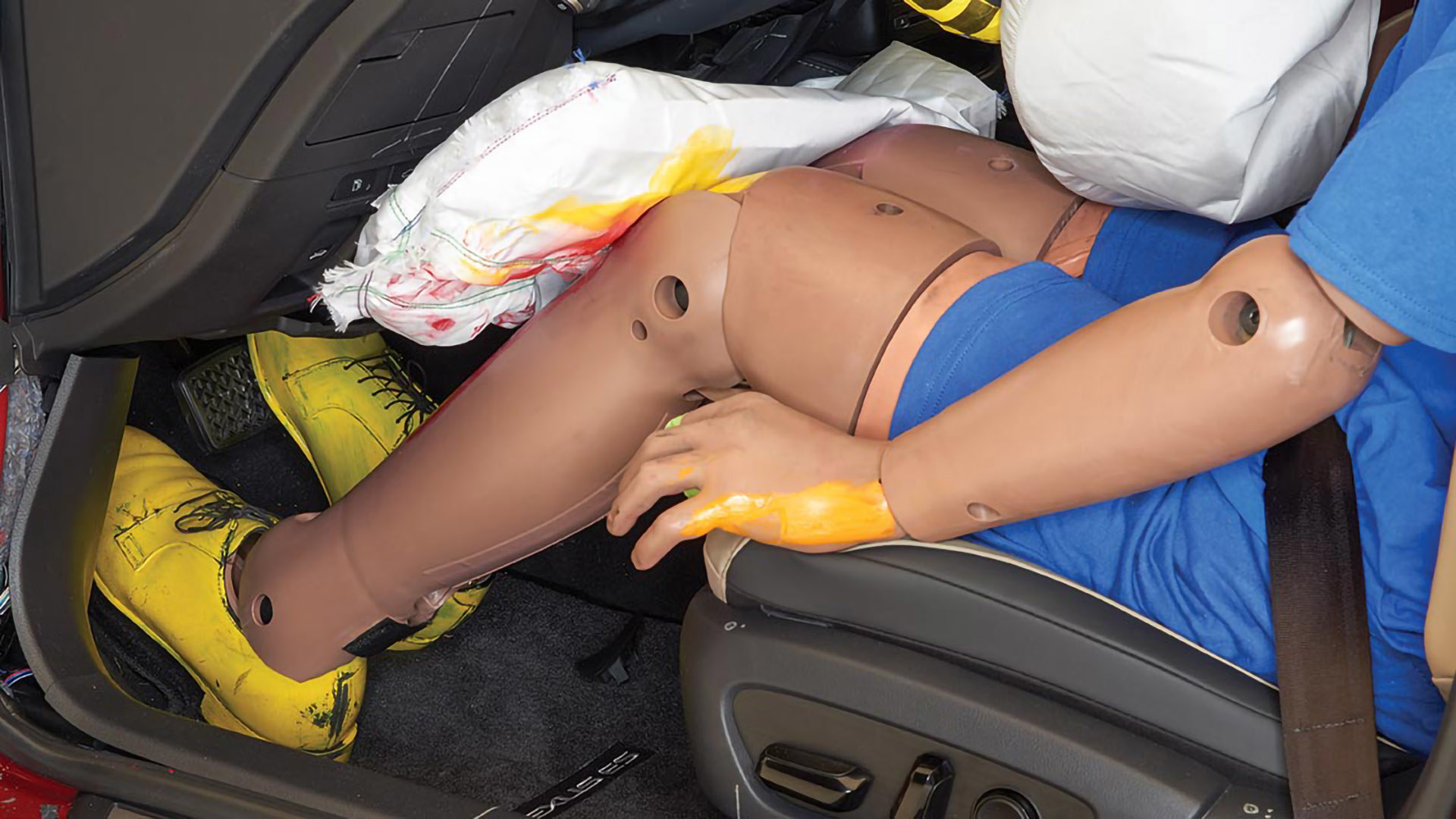The Insurance Institute for Highway Safety (IIHS) says the knee airbags in many modern vehicles offer little benefit in preventing or reducing the severity of car crash injuries.
IIHS researchers combed through data from more than 400 of its own crash tests and real-world collision reports from 14 American states. They found knee airbags provided minimal protection in some crashes and actually worsened injuries in others.
Knee airbags were conceived to reduce injuries that happen when a front-seat occupant moves forward in their seat during a frontal crash and/or the car's dash intrudes into the occupant's space. Knee airbags are not mandated in North America, but they're included in cars as inexpensive as the Chevrolet Spark and Hyundai Elantra. In some cars, just the driver gets a knee airbag; in others, the front passenger gets one too.
In the IIHS's small overlap crash test, in which 25 percent of the car's frontal width strikes a static barrier, "knee airbags were associated with increased risk for lower leg ... and right femur injuries," according to the IIHS's press release. However, the organization believes knee airbags helped reduce the risk of head injuries.
The results were no better in the moderate overlap frontal crash test, in which 40 percent of the car's width hits the barrier. Here, the IIHS found knee airbags had no net benefit. Also, in this test, the knee airbags' increased the probability of head injury by more than a third.
For the second part of its study, the IIHS looked at data from 14,599 two-vehicle frontal crashes in which both vehicles involved were "relatively new", had good ratings for structural safety, and where researchers knew whether the vehicles had knee airbags. In these crashes, knee airbags reduced the probability of driver injury by 0.5 percent (from 7.9 to 7.4), a difference the IIHS believes does not represent a meaningful benefit.
You can read the IIHS study on knee airbags here.

